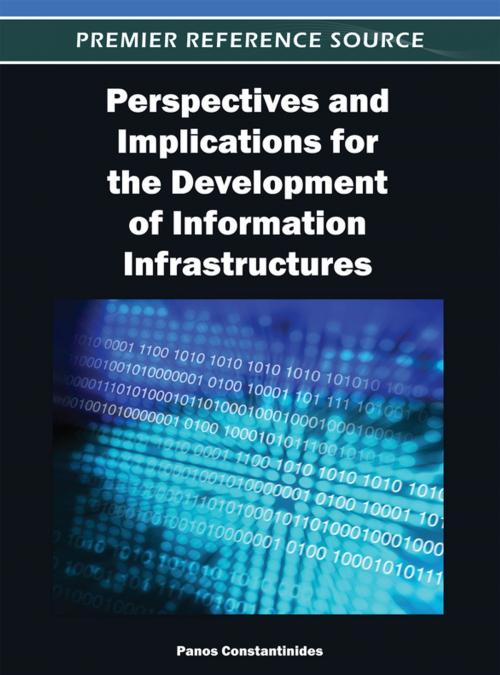Perspectives and Implications for the Development of Information Infrastructures
Nonfiction, Computers, Advanced Computing, Management Information Systems, Information Technology, General Computing| Author: | Panos Constantinides | ISBN: | 9781466622944 |
| Publisher: | IGI Global | Publication: | May 31, 2012 |
| Imprint: | Information Science Reference | Language: | English |
| Author: | Panos Constantinides |
| ISBN: | 9781466622944 |
| Publisher: | IGI Global |
| Publication: | May 31, 2012 |
| Imprint: | Information Science Reference |
| Language: | English |
In the same way that infrastructures such as transportation, electricity, sewage, and water supply are widely assumed to be integrators of urban spaces, information infrastructures are assumed to be integrators of information spaces. With the advent of Web 2.0 and new types of information infrastructures such as online social networks and smart mobile platforms, a more in-depth understanding of the various rights to access, use, develop, and modify information infrastructure resources is necessary. Perspectives and Implications for the Development of Information Infrastructures aims at addressing this need by offering a fresh new perspective on information infrastructure development. It achieves this by drawing on and adapting theory that was initially developed to study natural resource commons arrangements such as inshore fisheries, forests, irrigation systems, and pastures, while placing great emphasis on the complex problems and social dilemmas that often arise in the negotiations.
In the same way that infrastructures such as transportation, electricity, sewage, and water supply are widely assumed to be integrators of urban spaces, information infrastructures are assumed to be integrators of information spaces. With the advent of Web 2.0 and new types of information infrastructures such as online social networks and smart mobile platforms, a more in-depth understanding of the various rights to access, use, develop, and modify information infrastructure resources is necessary. Perspectives and Implications for the Development of Information Infrastructures aims at addressing this need by offering a fresh new perspective on information infrastructure development. It achieves this by drawing on and adapting theory that was initially developed to study natural resource commons arrangements such as inshore fisheries, forests, irrigation systems, and pastures, while placing great emphasis on the complex problems and social dilemmas that often arise in the negotiations.















